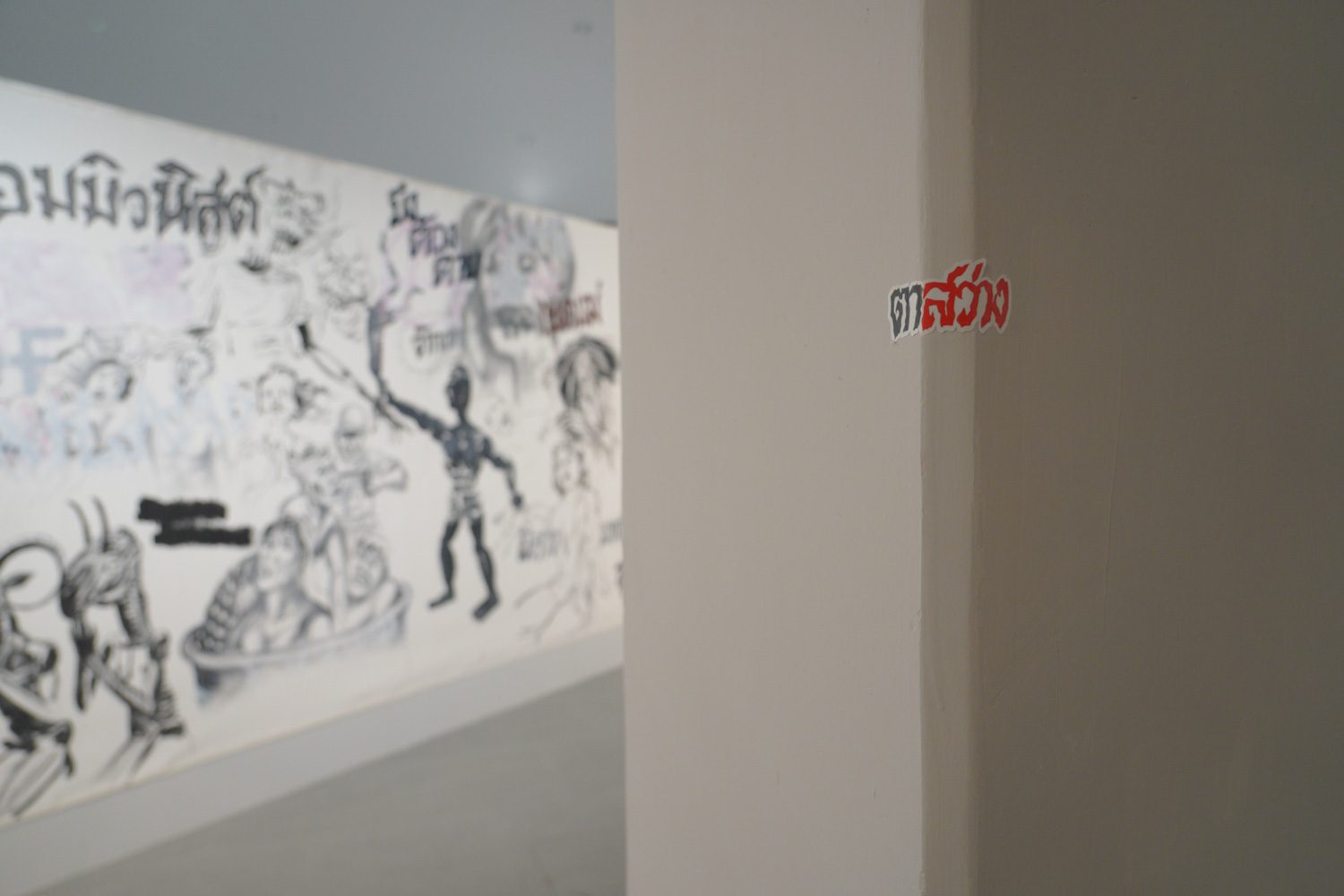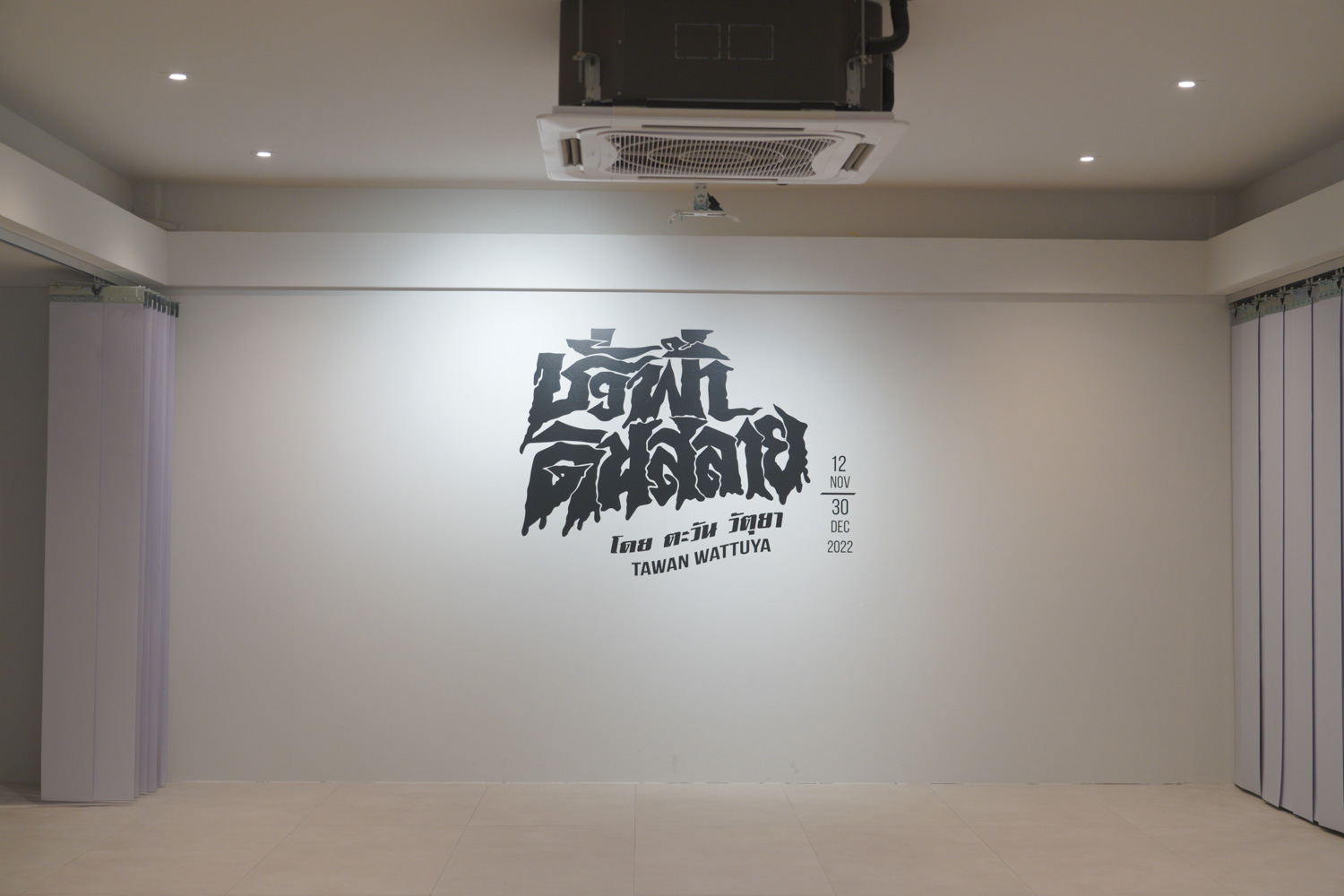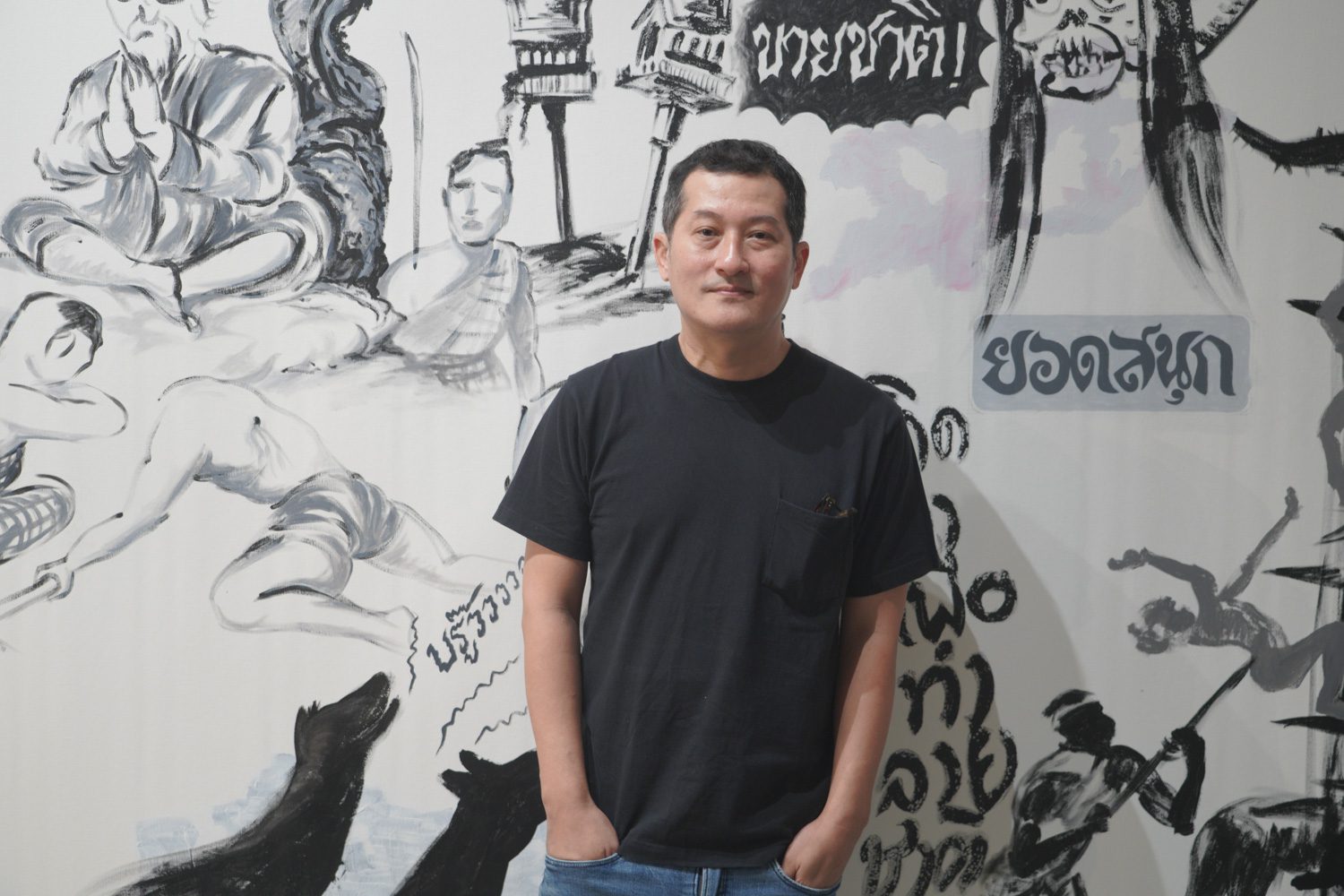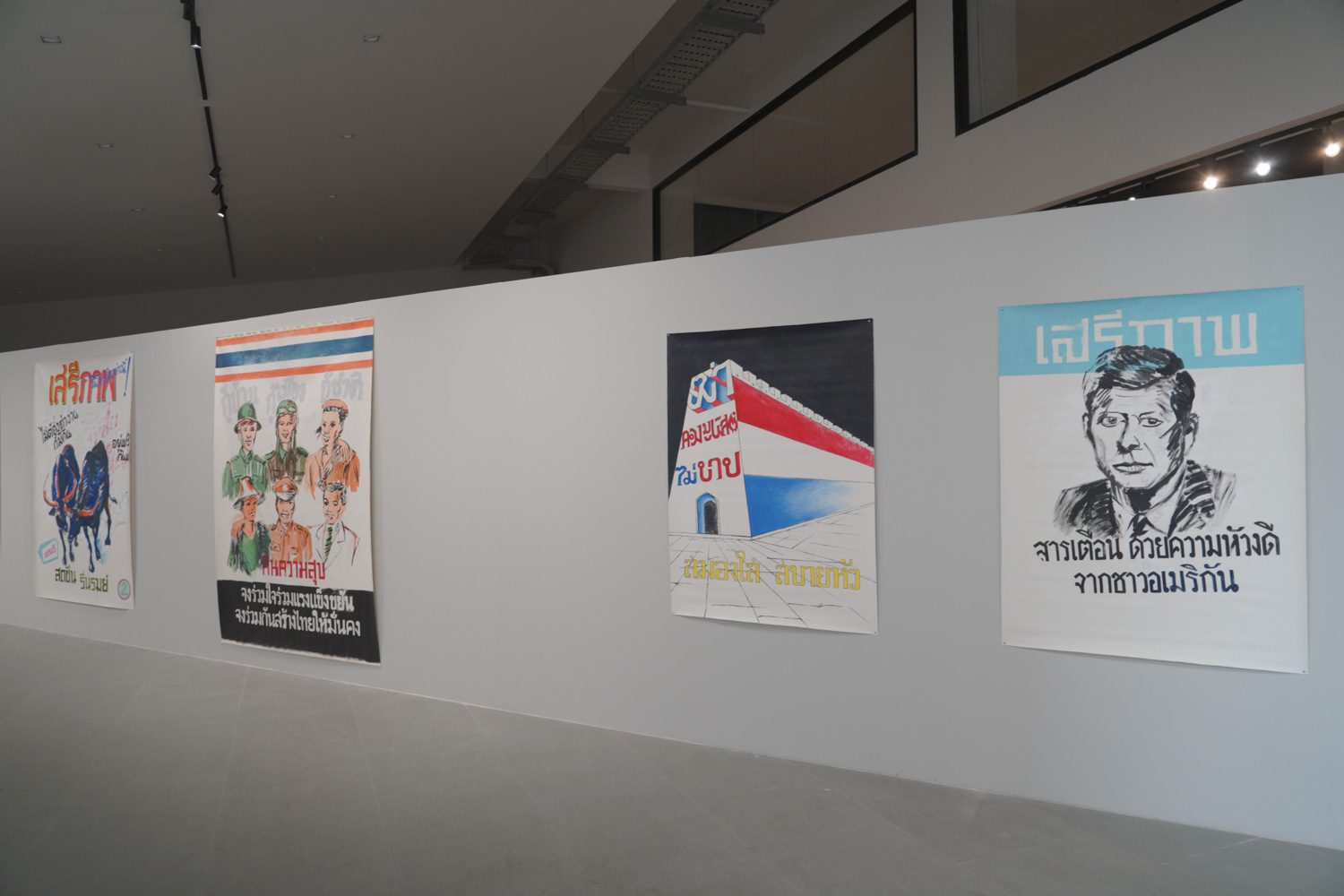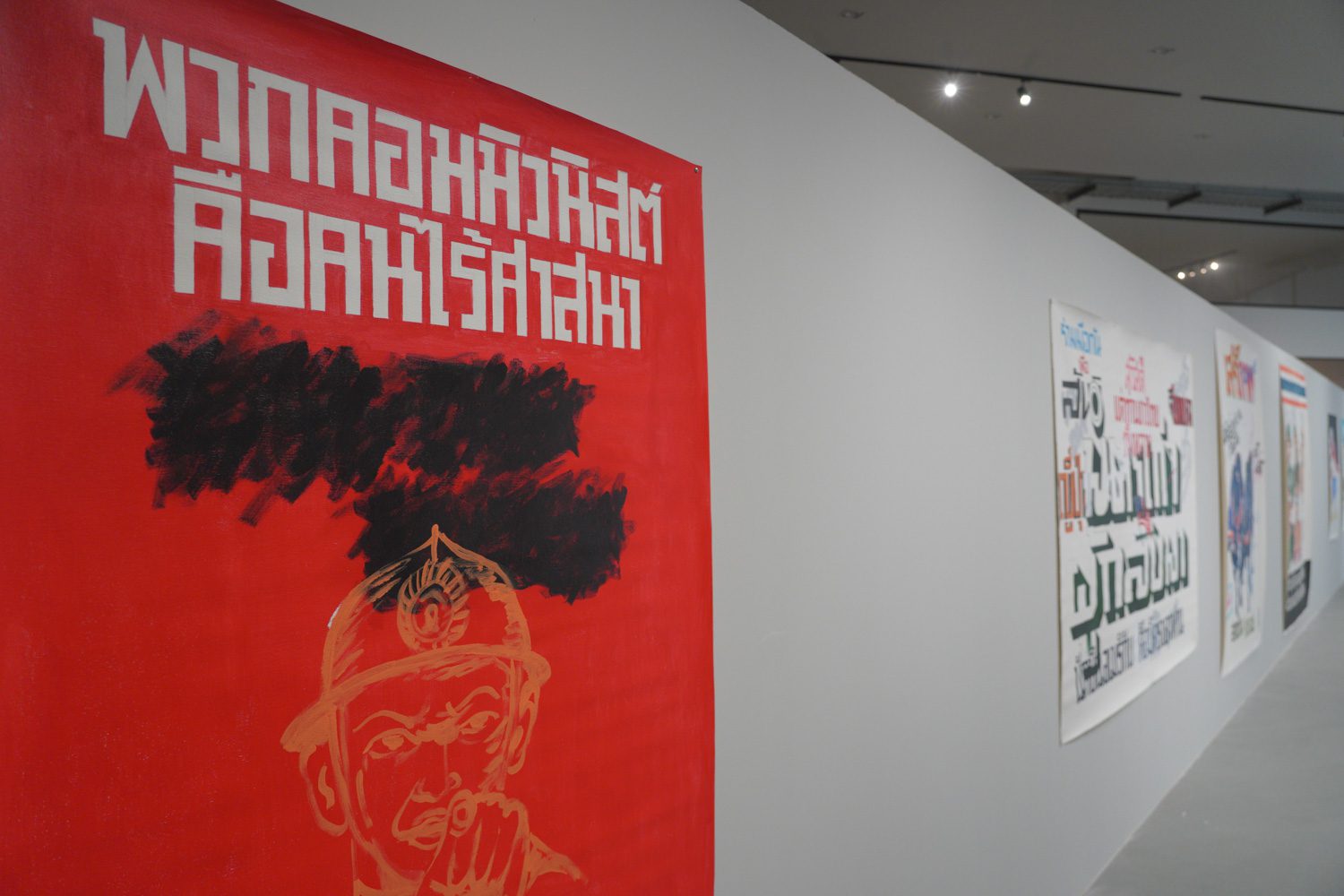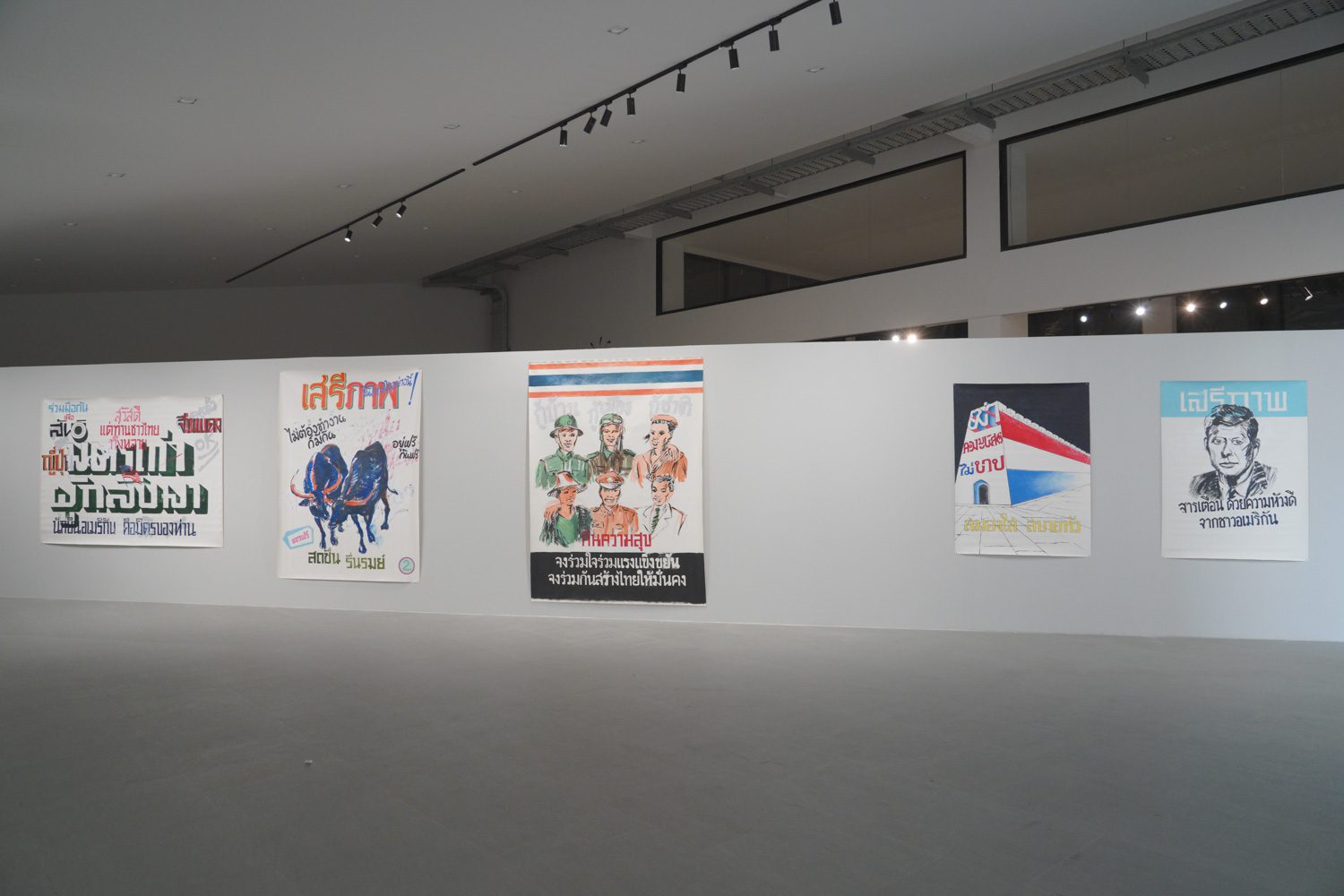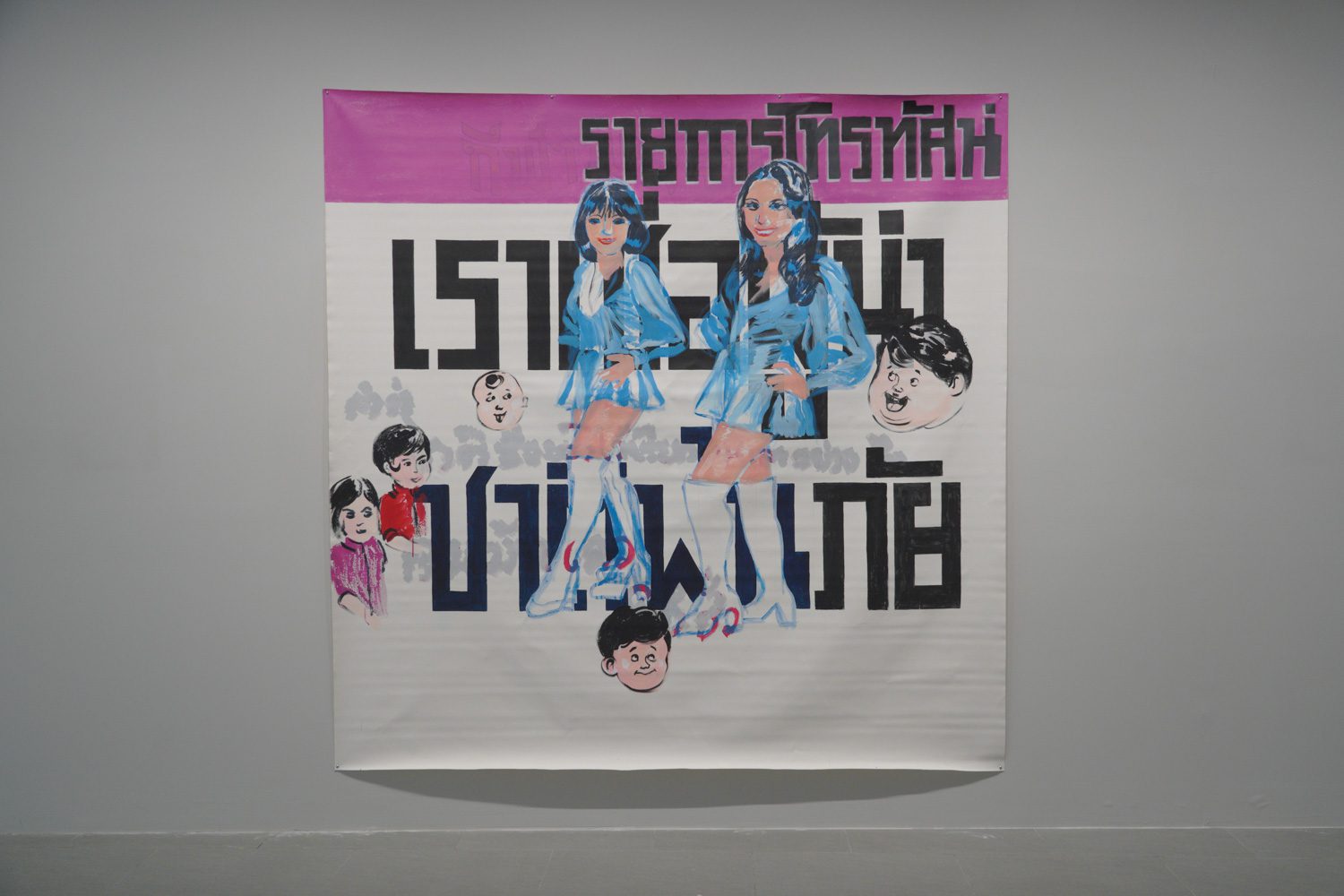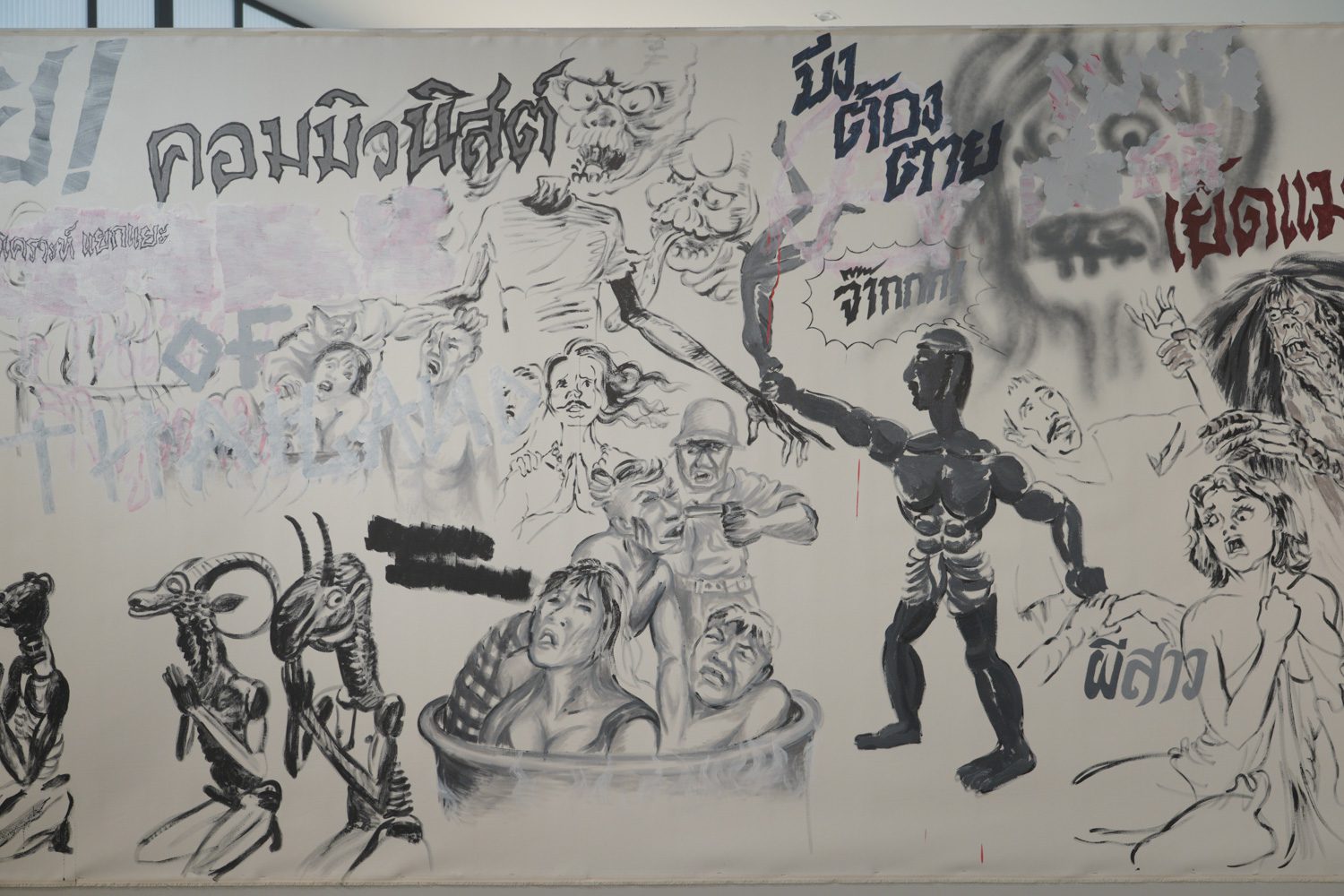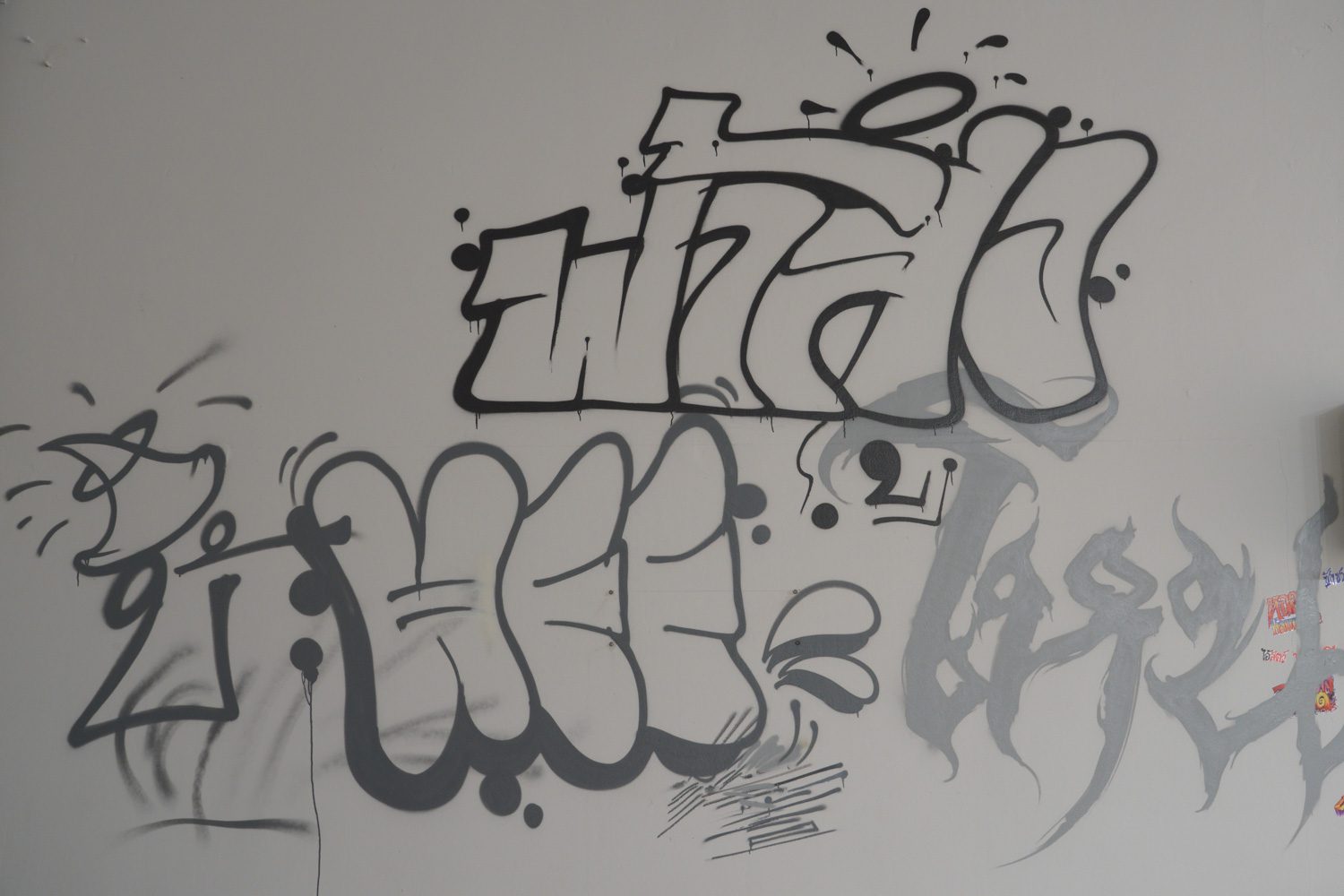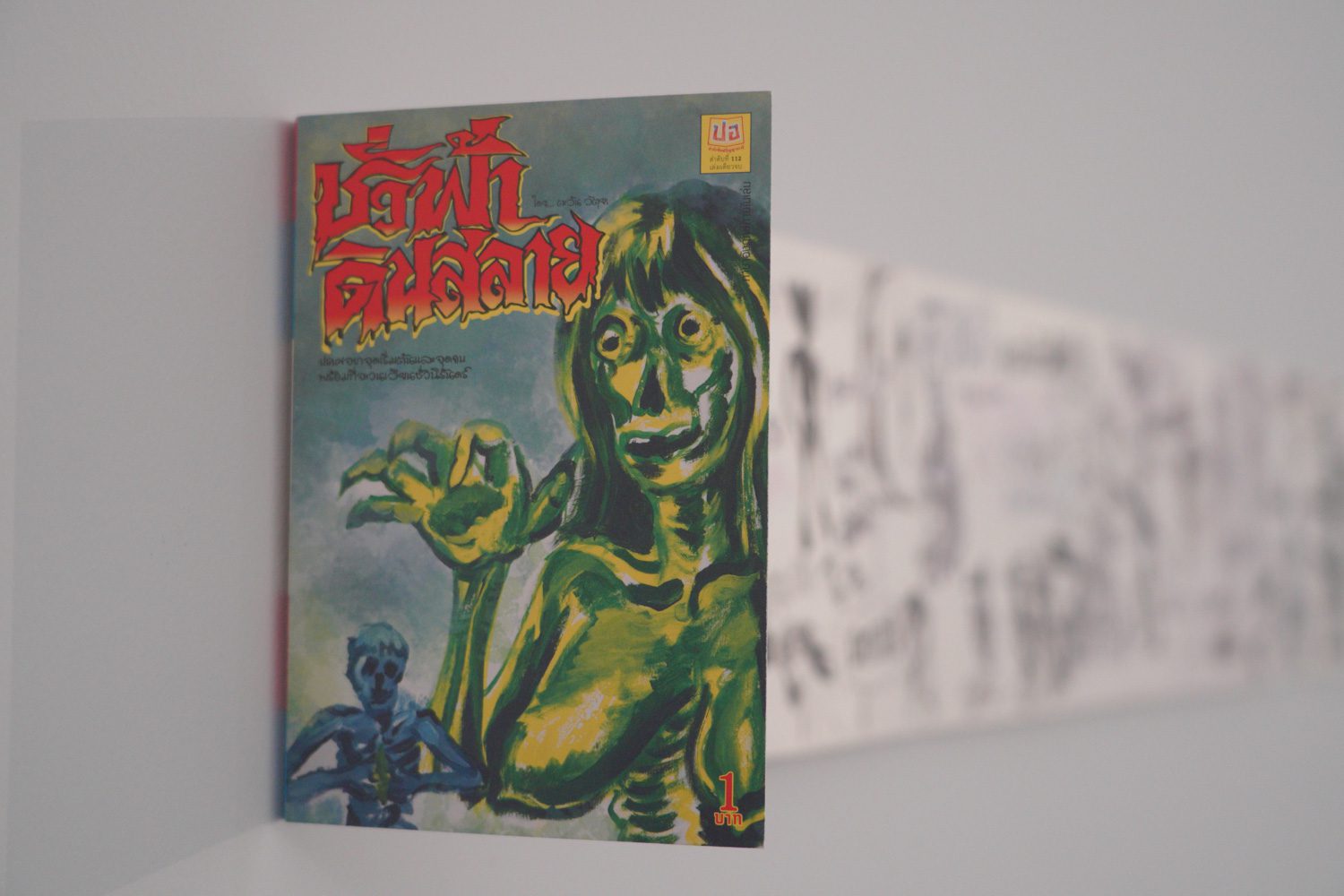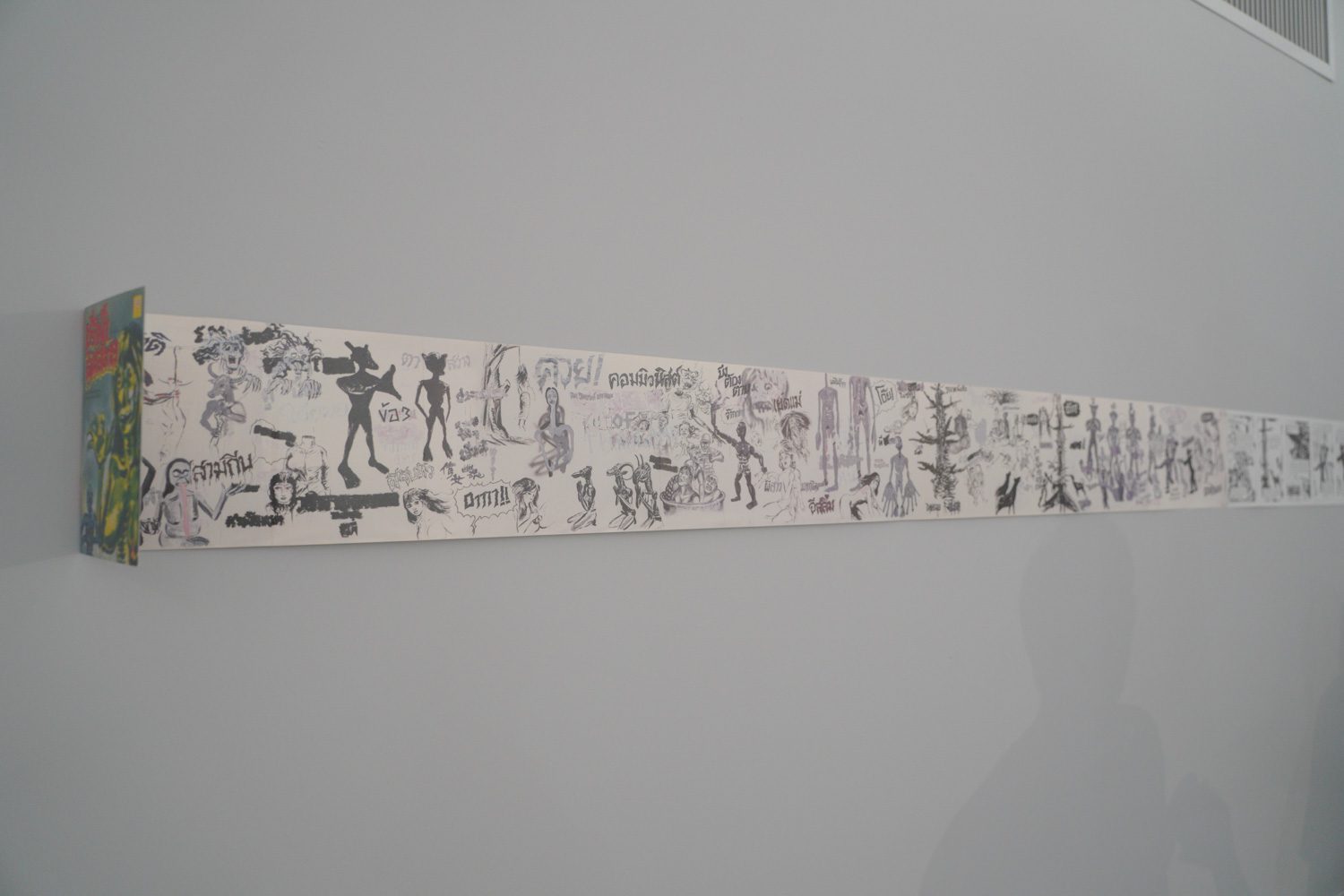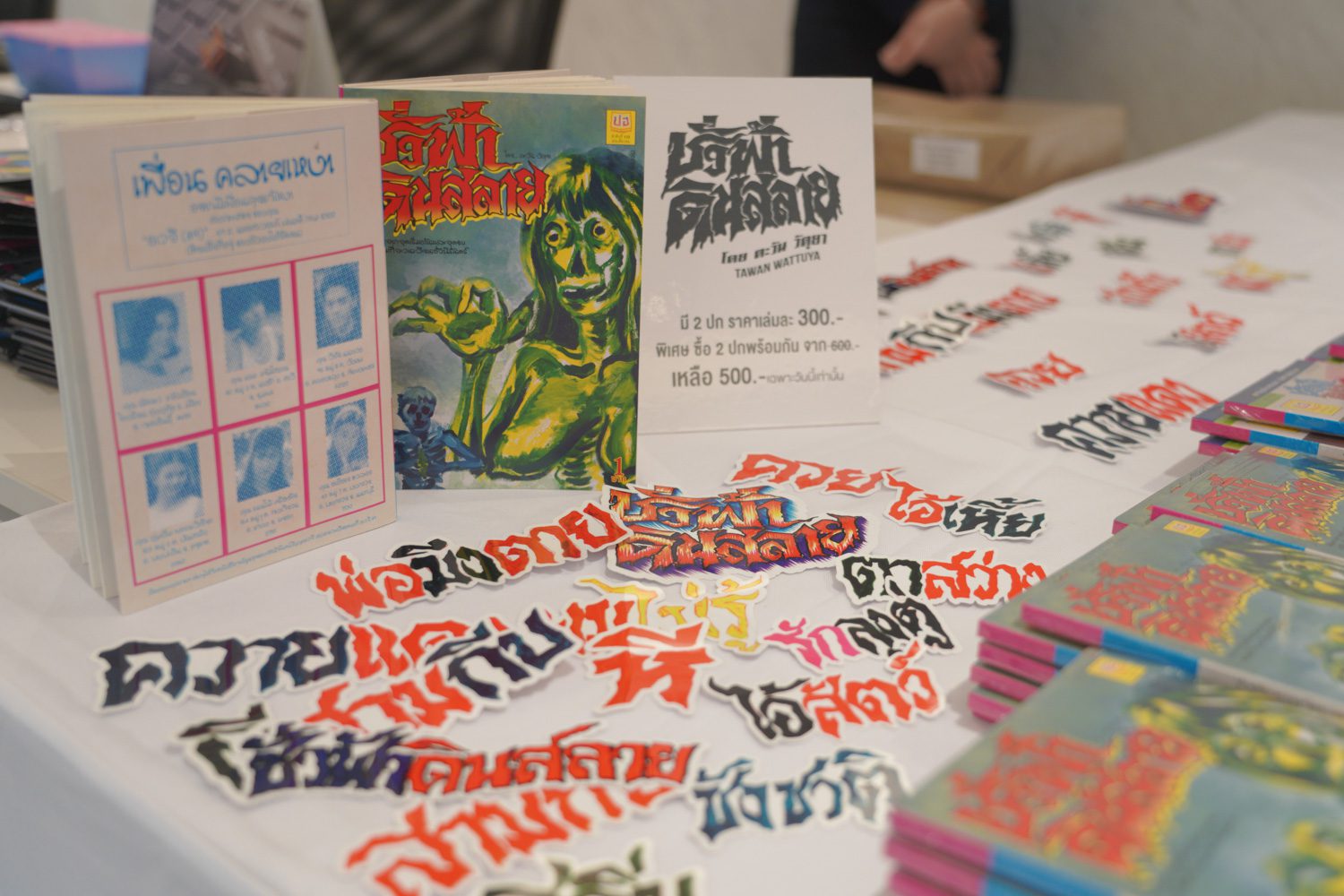HAUNTED SOLO EXHIBITION BY TAWAN WATTUYA UTILIZES DRAMATIC IMAGERY SYMBOLIZING ‘HEAVEN’, THE UTOPIC LAND WITH THE ABSOLUTE RIGHT TO ELIMINATE DISSIDENTS, AND ‘HELL’, THE REALM FULL OF EVIL WHO NEED TO BE EXCOMMUNICATED FROM SOCIETY. THE EXHIBITION DEPICTS THE PROPAGANDA METHOD CARRIED OUT BY THE STATE FROM THE COLD WAR TO NOW
TEXT: PRATARN TEERATADA
PHOTO: CHAT CHAIYAKUT
(For Thai, press here)
“Modern day Thai society’s quest for freedom and equality makes me realize how the verses of lost history have found their way here from the past, like a stream that runs and repeats its course…”
Above is an excerpt from an exhibition booklet with the design that clearly takes inspiration from vintage ghost comic books sold decades ago at bookstands for THB 1. It’s the booklet of Tawan Wattuya’s exhibition, Haunted Solo Exhibition, now showing at XSPACE Gallery through December 30th, 2022.
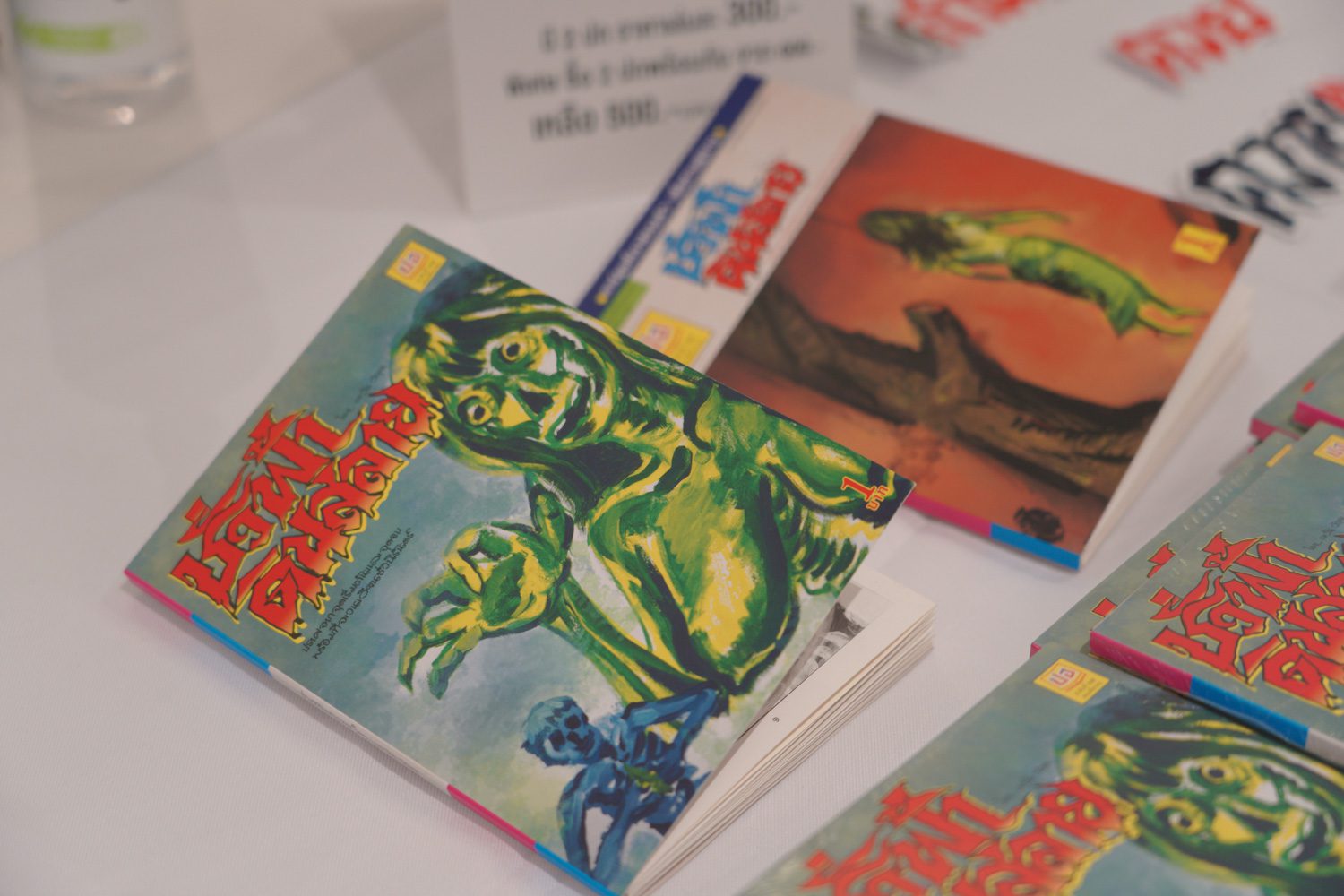
The exhibition space is organized into two wings, each reflecting the social milieu surrounding Thai politics and government across two historical periods. The exhibition depicts the eras of General Plaek Phibunsongkhram’s term on one side and Field Marshall Sarit Thanarat on the other. The displayed works express the Thai State’s nation-building effort to communicate with its citizens through multiple methods of propaganda designed to fight communist ideologies. The strategies and mediums were acquired from the CIA’s own strategy to persuade the general public to have a greater faith in democracy. The propaganda, which emphasized the comparison between the quality of life and freedom under communism, appeared in a variety of shapes and forms, such as television advertisements, posters, pamphlets, and mural paintings commissioned by the Thai state that seem to mimic or mock the messages in the government’s official announcements, the goal of which was to ensure the public’s support for the country’s strong ruling figures. Religion was heavily intertwined with pro-government propaganda, such as the infamous “It’s not a sin to kill a communist” catchphrase. It actively promoted national beliefs, which were based on conservative nationalism, monarchy, and religious ideologies inherited from King Rama VI’s reign. Tawan’s figurative art pieces fit the propaganda technique in that they promote a faux sense of freedom, which aimed to brainwash people into receiving false and misleading information, and eventually developing absolute confidence and belief in the rulers in power for the ideology they believe they share.
A black and white piece with dramatic imagery symbolizing hell and heaven, similar to the controversial mural painting of Phai Rong Wua Temple, is shown on the opposite side of the exhibition room. The piece illustrates the culture of a place where people are so engulfed in unexplained beliefs and supernatural symbols and those beings gave birth to the saying, “Everything in this country is sacred except for the laws.” Underneath the seemingly cheap and amateurish sketches are characteristics of regular folk (compared to the propaganda created by the state during the Cold War exhibited over at the other wing). The artist incorporates political incidents as well as a time when people were fighting for their freedom. Street graffiti portrays cries, screams, and rage-filled words expressing disdain and wrath toward deviant systems and injustice. When ultranationalist and royalist beliefs returned to nearly active and extreme levels, as it did during the Cold War, the “nation” as defined by the right is portrayed through images of historical figures and ancestors such as the Bang Rachan villagers and Ayutthaya soldiers who marched and fought alongside the Burmese; people who exuded bravery and made sacrifices, whose blood was shed for their motherland. It’s the meaning that seems to diverge from the universal definition of a nation in the current, civilized world, where human equality is celebrated and the environment and sustainability are prioritized. This is a country where religion is an institution that cannot be questioned, something that people must believe in and defend with their lives. It’s the definition of religion as something that exists to support the power of the state, not a philosophy that seeks to study and grasp the ultimate truth of nature—the uncertainty that one must learn to let go of. Monarchy, for the far right, is almost the same as religious belief in the sense that kings are demi-gods, the ultimate spiritual anchor that is exploited by the extreme conservatives to annihilate those who think differently, rather than being protected and respected as a symbolic institution of which Thailand is made, as its “democratic form of government with the king as head of state” suffix claims.
“What is hidden spawns terrifying inherited stories.” The exhibition depicts historical events in Thai society through paintings that reflect narratives from two polarizing ideologies, one portraying happiness and grandeur and the other full of evil ghosts and demented spirits that still haunt Thai society. The wounded remnants of history are dispersed within the space that envelops the viewers. “It’s like a poem with no beginning or end but that will drift through eternity; the ghost that continues to terrorize Thai society; the tragic reality that happened and turned into curses and nightmares that will last until the end of time.” (Kritsada Duchsadeevanich, curator of Tawan Wattuya’s Haunted Solo Exhibition)
In the current social context, where people are still crudely divided into two ideologies, the right, or conservative, still despises communists as if they were demons from hell, but loves China and Putin, the poster children of modern communism. Not to mention how they despise America because they are responsible for the growth of the left, all the while continuing to employ the CIA’s propaganda culture. This country also has a progressive left that has fought at all levels of society to keep systems and justice in working order. Then there’s the radical left, which dreams about radicalizing the entire ruling system. People on both sides must coexist under mutually agreed-upon rules and laws, regardless of their beliefs. Debate and argue if you disagree, curse at each other at times, criticize each other if there’s an opportunity, fight if it’s really inevitable, or persuade others who haven’t taken sides yet. Do all these things for the sake of your own ideology because they’re perfectly normal acts and instances in a democratic society and shouldn’t be too hard to understand and accept.
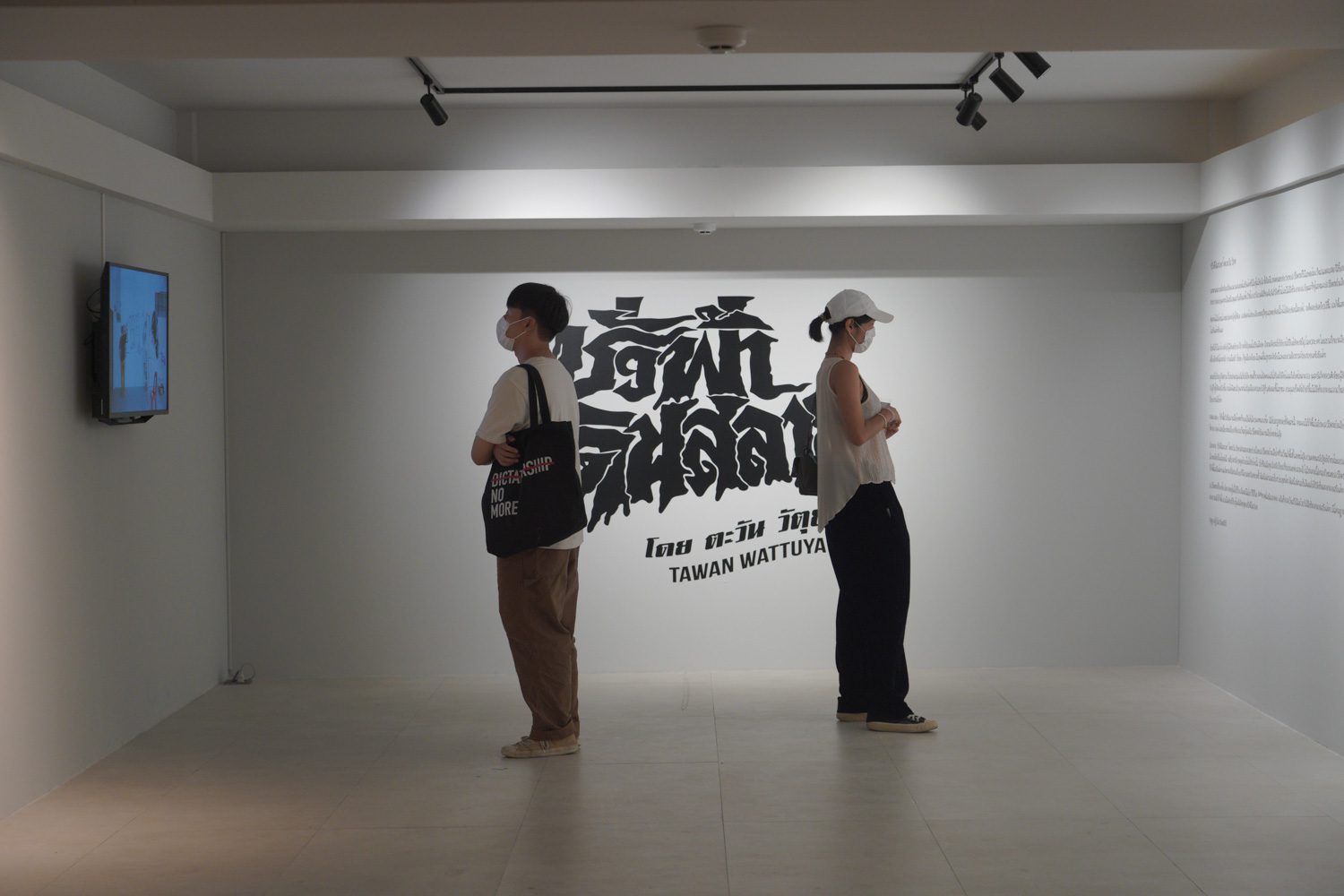
The problem is that those who continue to benefit from authoritarianism will not give everything up so easily. They want to continue to control, dictate, and command society to go in the direction they want it to go, regardless of the methods they must employ. They’re narrow-minded, nasty dinosaurs who believe change is something they can’t withstand!
